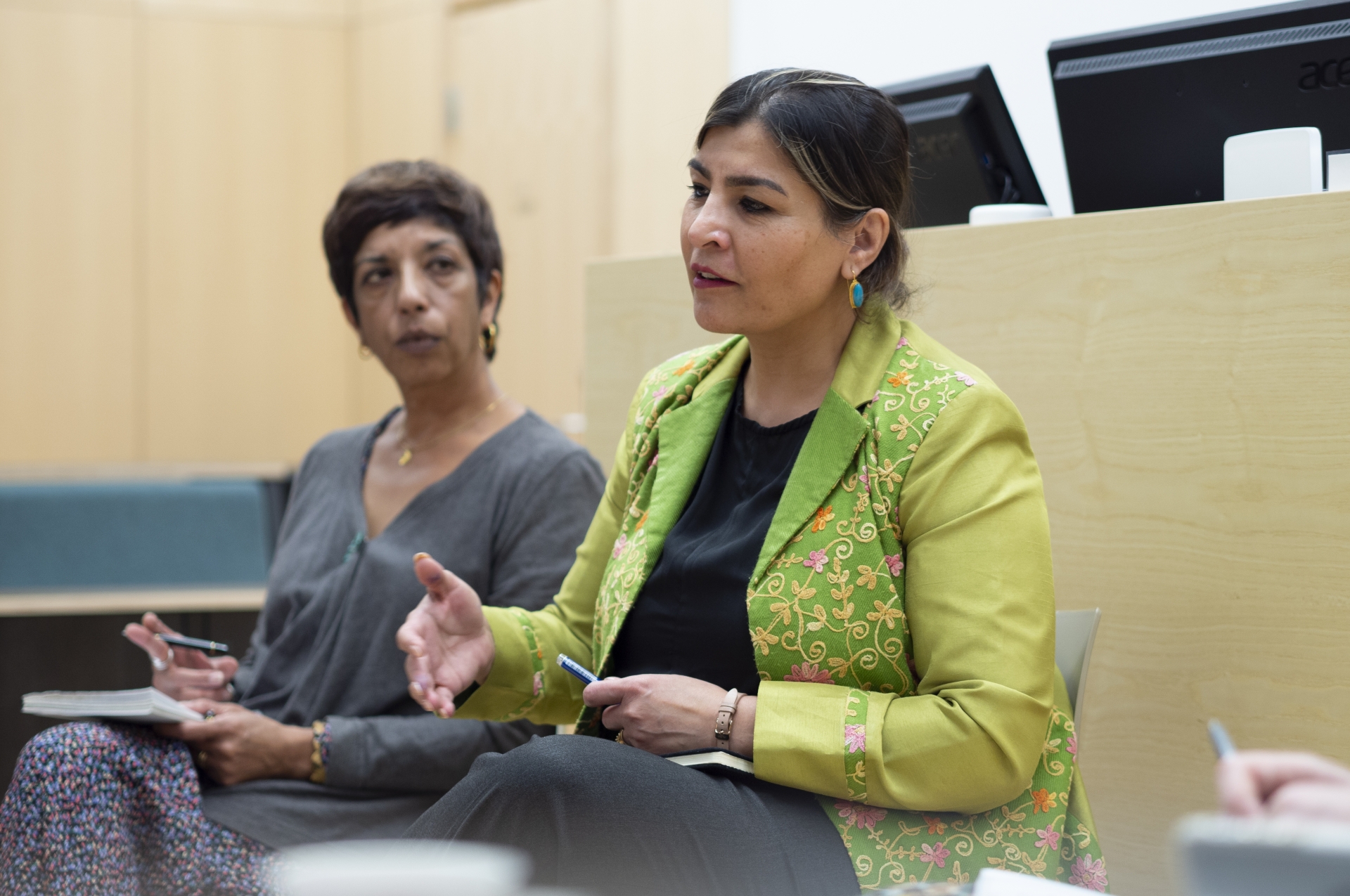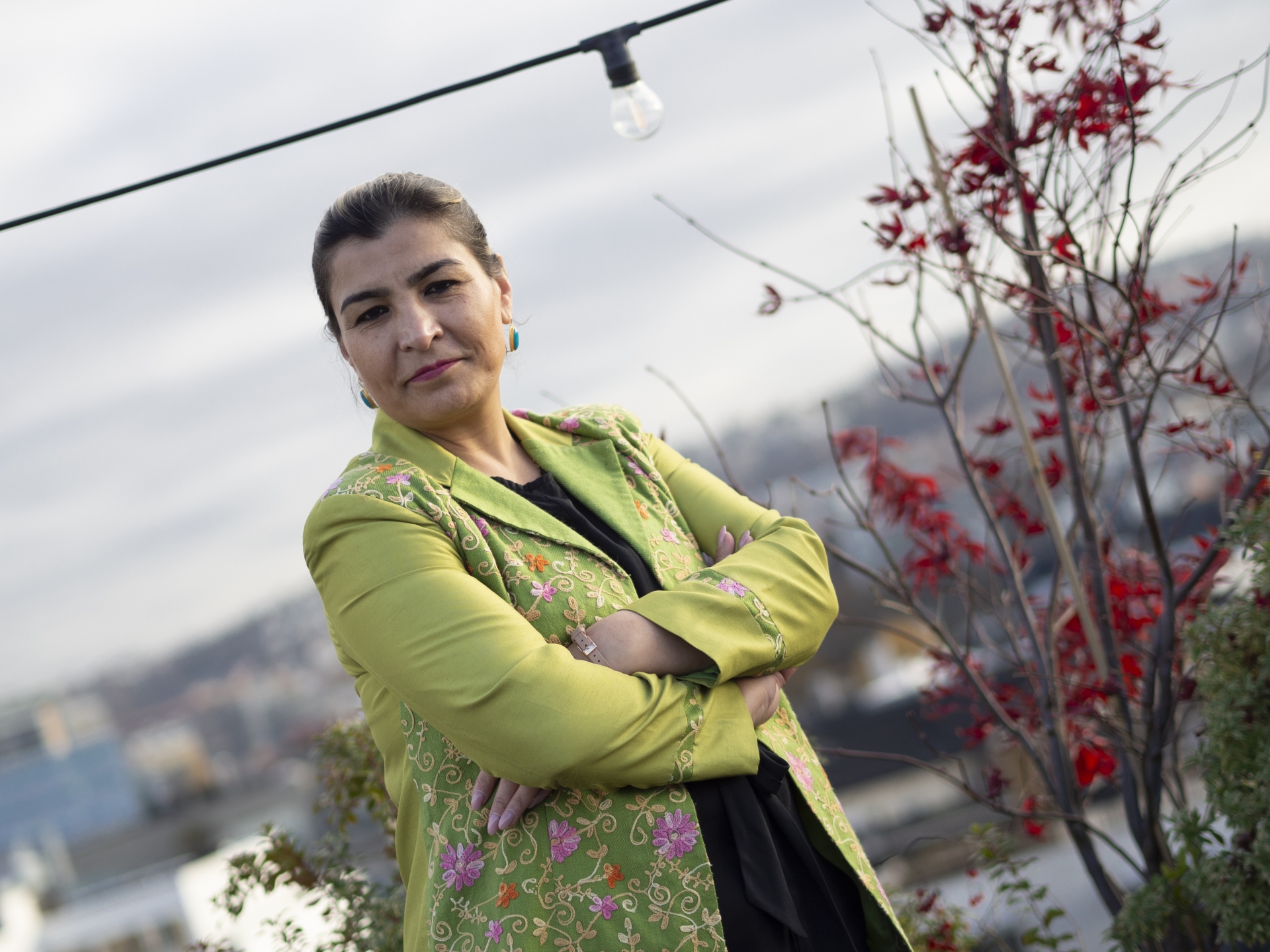All photos by Mónica Orjuela.
In early November, the NHRF arranged an event on the situation of Afghanistan at the Faculty of Law, University of Oslo. The panel discussion was opened by Professor Peris Sean Jones from the Norwegian Centre for Human Rights, and the panel consisted of Horia Mosadiq, Afghan human rights defender and founder of Safety and Risk Mitigation Organization (SRMO), Meena Varma, Executive Director of International Dalit Solidarity Network (IDSN) and Liv Kjølseth, Secretary General of the Norwegian Afghanistan Committee. NHRF’s Executive Director Ingeborg Moa moderated the panel.
The panelists discussed the main challenges for human rights defenders in Afghanistan and for those who managed to evacuate, as well as what needs to be done now to tackle future challenges. Human rights defender Horia Mosadiq provided an overview over the extremely challenging situation in Afghanistan the past years and in particular the past months, from the United States troops withdrawal to the Taliban takeover and evacuation that followed. She expressed how she believes the power now lies within the people - the civil society, who keeps going on despite facing extreme risk.
Liv Kjølseth, Secretary General of the Norwegian Afghanistan Committee talked about the situation for all her employees working in the countries, as well as the similarities and differences in risk when it comes to being defenders of human rights and humanitarian workers. They decided to “stay and deliver” instead of evacuating, alike many other humanitarian organisations did in the country. However, one of the main challenges now is how to transfer money into the country.



